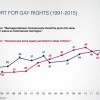
Houston’s Changing Views on Gay Marriage, in Three Charts
Though Texas elected officials oppose gay marriage, residents of its biggest city support it

Houston’s Changing Views on Gay Marriage, in Three Charts
Though Texas elected officials oppose gay marriage, residents of its biggest city support it

It’s Scary Just How Little We Know About Local Elections
There’s no centralized hub for elections info, so key questions about democracy remain unanswered. With new funding from the Knight Foundation, we’re changing that.

The Life and Death of the Urban Highway
Houston isn’t alone. A growing number of cities are tearing down infrastructure that cuts through downtown.
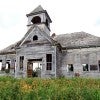
To see the legacy of slavery, look at present-day school systems
Slavery has long since been abolished in the U.S. but the affect of its legacy may still linger in our education system.

With $2.2 million in grants, a new type of education research thrives
A new model supports cutting-edge education research that has real-world applications

Surveys show Houstonians’ long-running, love-hate relationship with transit
Residents often clamor for transit — even though they’re sometimes reluctant to use it

The City You Live In May Affect Your Risk of Suicide
New research reveals that the socioeconomics of cities may play a role in determining suicide risk
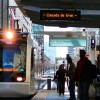
Demand, supply, gap: Transit deserts in Houston
Houston METRO's reimagined bus network is working to close service gaps but a new study shows that transit deserts in Houston still exist.

Should the Census add more choices on gender?
Starting in 2000, the Census offered more flexible choices when it comes to race. Should it offer broader choices on gender too?

Why there’s a disconnect between Texas voters and their lawmakers
Increasingly, Texans and their elected officials aren't seeing eye-to-eye. That's not just a coincidence.
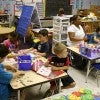
New study shows benefits of two-way, dual-language education
Students learn English better when they’re also taught in their native tongue.
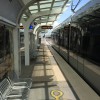
Taking the pulse of Houston’s newest rail line
Riders say METRO’s Green Line is shaving time off their travel. But some business owners remain skeptical of the project’s merits.

Cities tap university expertise to cure urban ills
They’re trying to make “big data” more than a catch phrase.

HISD opens massive school district data sets to researchers
Hundreds of professors across the country spend countless hours researching education, but few are likely to affect the way schools are actually run.
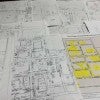
Mapping a community one parking spot at a time
Maps are one way to represent how we understand a given space.
Rice University
Kraft Hall
6100 Main Street, Suite 305
Houston, TX 77005-1892